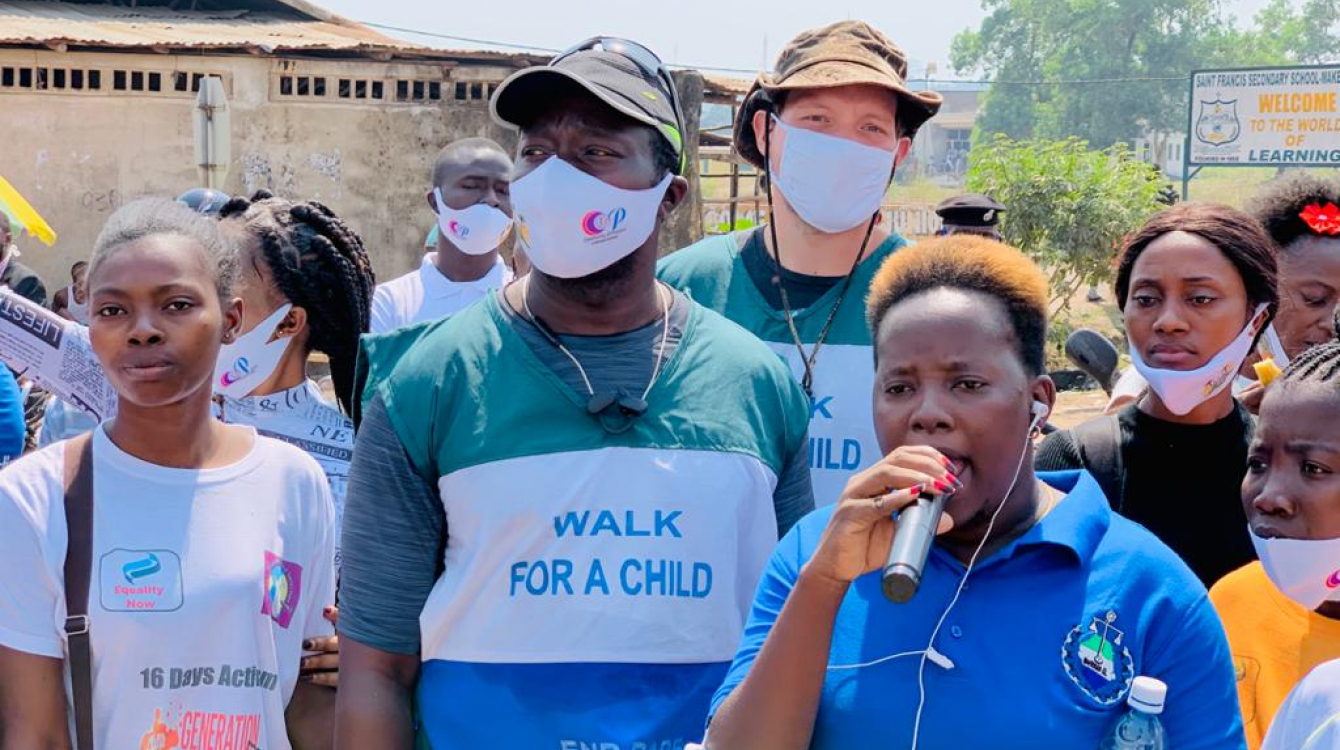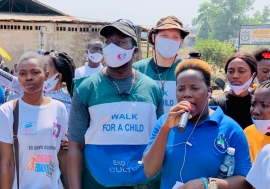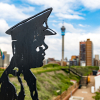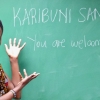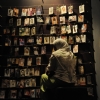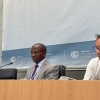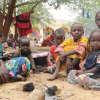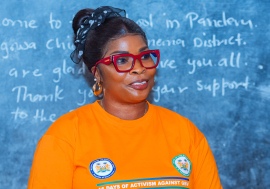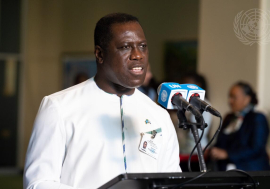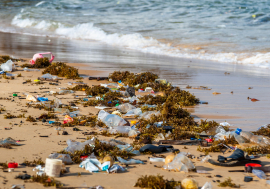Prior to this year, the longest distance Hindola Pokawa ever walked was the six miles between his parents’ house at Congo Water, east Freetown, and St Helena Secondary School, on the outskirts of Sierra Leone’s capital city, Freetown. That was two decades ago when he was a secondary school student.
But on 6 January this year, the 43-year-old Sierra Leonean and his American friend, Dustyn Montgomery, 23, decided to walk 500 km from the Kailahun Court Barray in eastern Sierra Leone to the iconic 500-year-old Cotton Tree in the middle of Freetown which is in the west of the country. It would take them 21days.
“We wanted to contribute to the fight against rape and gender-based violence,” Mr. Pokawa said in an interview. “So, we decided to walk the distance to raise needed awareness.”
The duo had been moved by the widely publicized tragedy of a five-year-old girl who reportedly was raped and murdered by her cousin in June 2020.
The little girl’s death sparked local and international outrage, prompting human rights activists to call for severe punishment of perpetrators of gender-based violence (GBV).
At the time, President Julius Maada Bio said: “The depravity of sexual violence [in Sierra Leone] is obscene, criminal and totally objectionable.”
“I felt a direct connection [with the girl] because many young people I know, two to six years of age, could have been her,” Mr. Pokawa said.
“I decided to walk that distance. But I thought I shouldn’t do it alone, so I asked Dustyn to join me. He was all in.”
Mr. Montgomery and Mr. Pokawa became friends in the late 2000s when Mr. Montgomery was a student with the Minnesota-based Higher Education Consortium for Urban Affairs (HECUA) and the Sierra Leonean was a faculty member.
Mr. Montgomery’s trip to Sierra Leone was his first outside the United States.
Mr. Pokawa says the first five days of the journey were tough and exhausting, physically and mentally.
“The constraints of insufficient sleep, muscle aches, and inadequate food were severe, but the pain we experienced was nothing compared to the pain and trauma of rape victims,” he said. “The trauma lives with the survivors for the rest of their lives.”
Publicized by the local media, their walk caught the attention of citizens, government and international organisations based in Sierra Leone.
As they walked through villages and towns, people urged them on.
“From village to village, town to town, city to city, we met rape survivors. We listened to their stories. And we felt that there were more rape and GBV cases that are reported,” said Mr. Pokawa.
The UN Resident Coordinator in Sierra Leone, Babatunde Ahonsi, applauded their effort.
“This laudable awareness-raising effort not only calls attention to the declaration of rape and sexual assault as a national emergency by President Bio in 2019, but it also speaks to Goal 5 [gender equality] of the SDGs. Rape is a national catastrophe, and every Sierra Leonean must play a part in fighting this malaise and other forms of violence,” Mr. Ahonsi said in a tweet.
He later crowned Mr. Pokawa a HeForShe champion at a meeting facilitated by UN Women. HeForShe is a global solidarity movement led by the UN to promote gender equality.
Naasu Fofana, a rape survivor and campaigner against GBV in Sierra Leone, posted on Facebook: “Walking 315 miles from Kailahun to Freetown is no child’s play. But Hindolo [Pokawa] and Dustyn challenged themselves… Thank you for your selflessness.”
Rape declared national emergency
President Bio has declared rape and sexual violence a national emergency.
Sierra Leone in 2019 passed the Amended Sexual Offences Act of 2012, which stipulates up to 15 years in jail for those who use power or position to sexually abuse or harass others.
Born in Mondema village, Kenema District, in eastern Sierra Leone, Mr. Pokawa pursued liberal studies at the University of Minnesota in the U.S. He returned to Sierra Leone in 2011.
He launched a non-profit called the Sierra Leone Foundation for New Democracy to “bring communities together to address the extractive and exploitative relationships that keep communities in poverty.”
Overall, Mr. Pokawa is happy about the outcome of their walk. “We have raised the profile of GBV in the country, we have increased awareness, we have challenged men to join women in this fight. We are happy about that.”
They intend to continue their anti-rape advocacy. “The fight goes on until we have a society where women and girls can live without fear of sexual violence. We will never relent,” Mr. Pokawa vowed.
Mr. Sankoh is the Programme Communications and Advocacy Officer in the office of the UN Resident Coordinator in Sierra Leone



